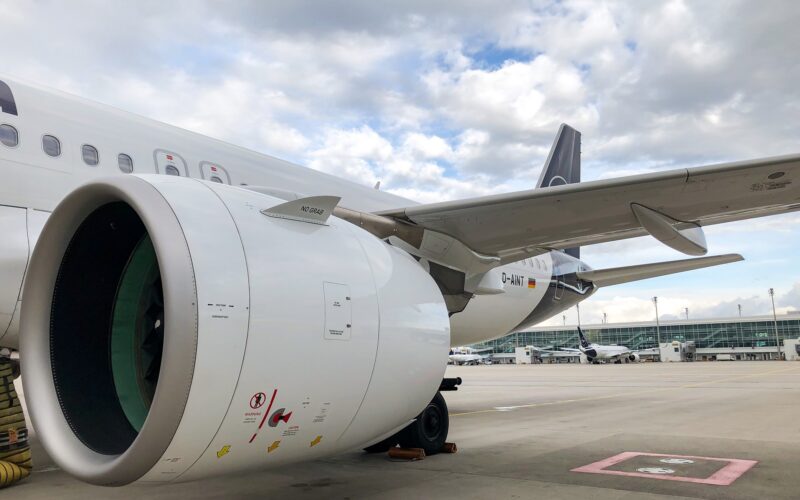Pratt & Whitney’s parent company, RTX (formerly Raytheon Technologies), has revealed that a significant number of engines powering the entire Airbus A320neo aircraft family will need to be removed for inspection.
“Pratt & Whitney has determined that a rare condition in powder metal used to manufacture certain engine parts will require accelerated fleet inspection,” RTX said in its Q2 2023 results announcement, adding that the issue does not affect engines currently in production.
RTX said it anticipates “a significant portion” of operators of the Airbus A320neo family aircraft, comprising of the A319neo, A320neo, and A321neo and its derivatives, will have to remove the PW1100G engine quicker than anticipated for inspection “within the next nine to twelve months”. This includes around “200 accelerated removals by mid-September of this year”, the company said.
“The business is working to minimize operational impacts and support its customers. Management will provide additional detail on this matter during the earnings call,” RTX added.
According to ch-aviation.com data, 1,321 Airbus A320neo family aircraft are powered by the PW1100G engine with 68 different airlines globally. Out of those, 211 are stored, meaning that a total of 15.9% of the PW-powered A320neo family fleet is currently inactive.
In comparison, there are 1,474 Airbus A321neo family aircraft powered by the CFM International LEAP 1-A, of which 74 are stored or in maintenance (5%), an analysis of ch-aviation.com data showed.
Throughout the year, Pratt & Whitney has struggled with its engine operations and airlines have complained about operational reliability and slow turn-around times (TAT) at engine shops. The affected engines included the PW1500G and PW1900G, powering the Airbus A220 and Embraer E2 aircraft, respectively, as well as the PW1100G.
The engine family is also known as the Geared Turbofan (GTF).
The most high-profile case related to P&W’s engine issues was when India-based Go First suspended operations, blaming Pratt & Whitney for “close to 50% of its A320neo fleet” being grounded by December 2022.
In June 2023, Pratt & Whitney published a roadmap for the future of the GTF program, saying that it has improved time-on-wing (TOW) for the GTF since the inception of the program.
Still, while airlines in cooler environments “experiencing time on wing that the company expected at this point in the program”, operators based in “hotter, sandier environments are seeing shortened intervals and lower time on wing than expected”.
“In addition, industry-wide supply chain pressures have affected material availability, which has led to increased turnaround times in maintenance, repair and overhaul (MRO) shops,” the company added.
As a result, 10% of the GTF-powered fleet was grounded at the time.
Furthermore, Pratt & Whitney has been expanding shop capacity for the GTF engine family, which should see Aircraft on Ground (AOG) “rates coming down through the end of 2023”.
“We have more design enhancements ahead in 2024 and 2025 to further improve durability, including improved turbine and combustor hole drilling techniques and modified cooling hole patterns,” Matt Teicholz, vice president of Engineering for the GTF engine, concluded.

